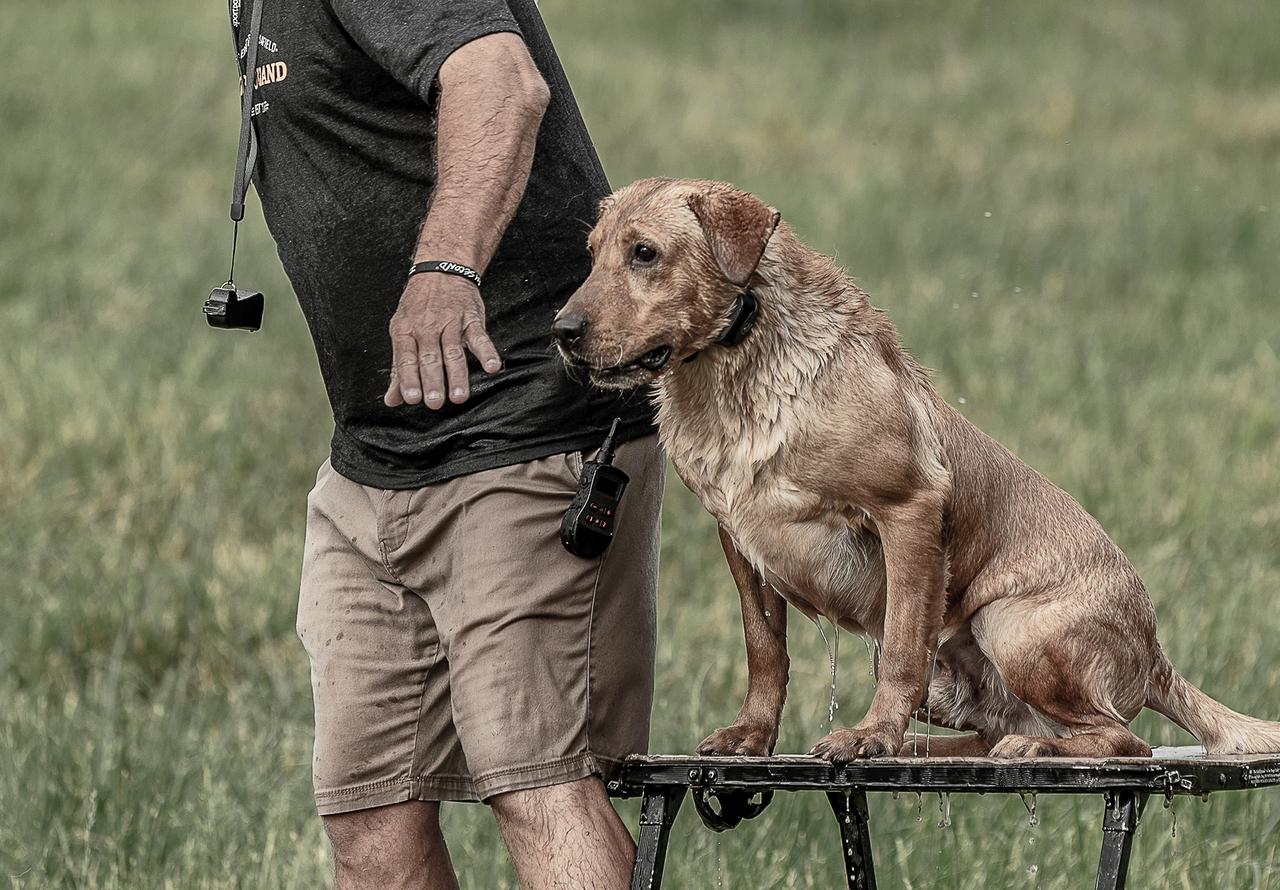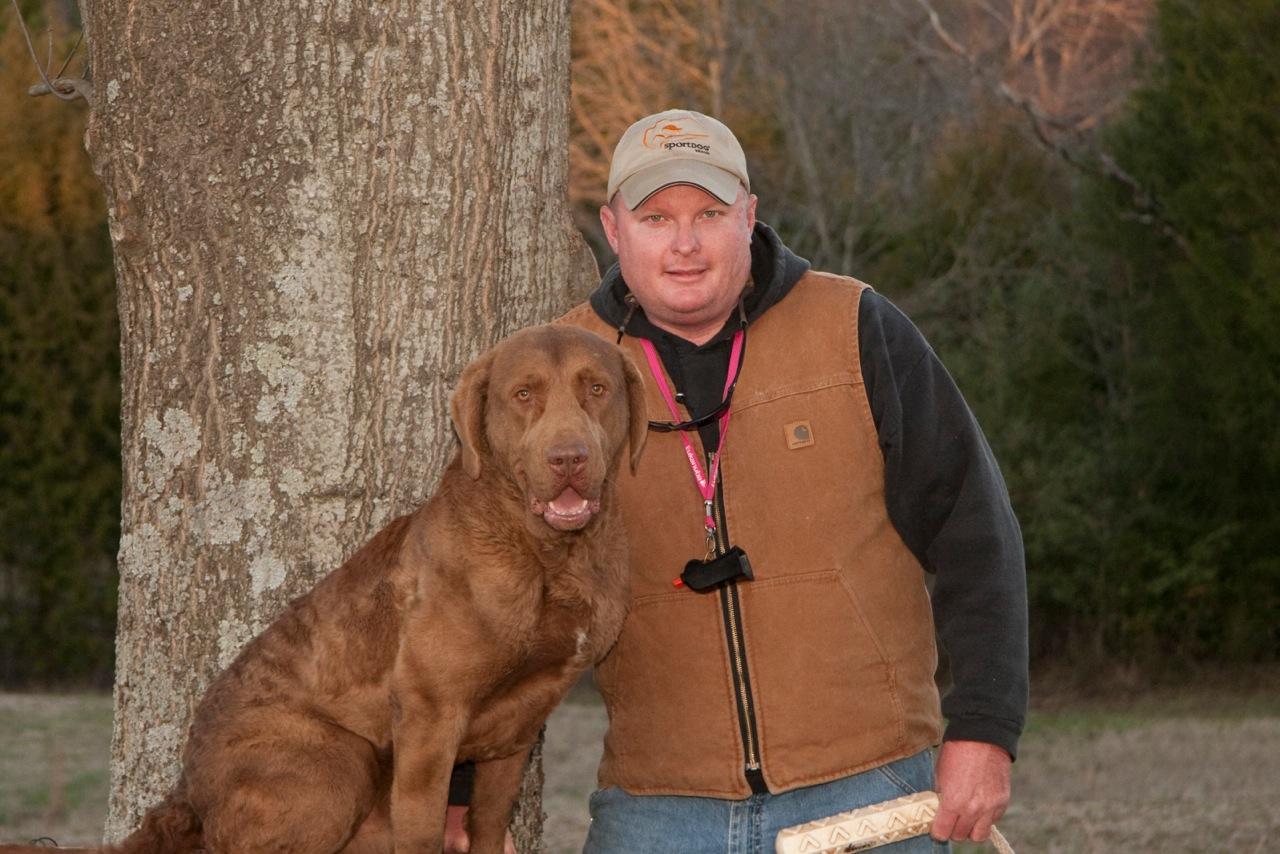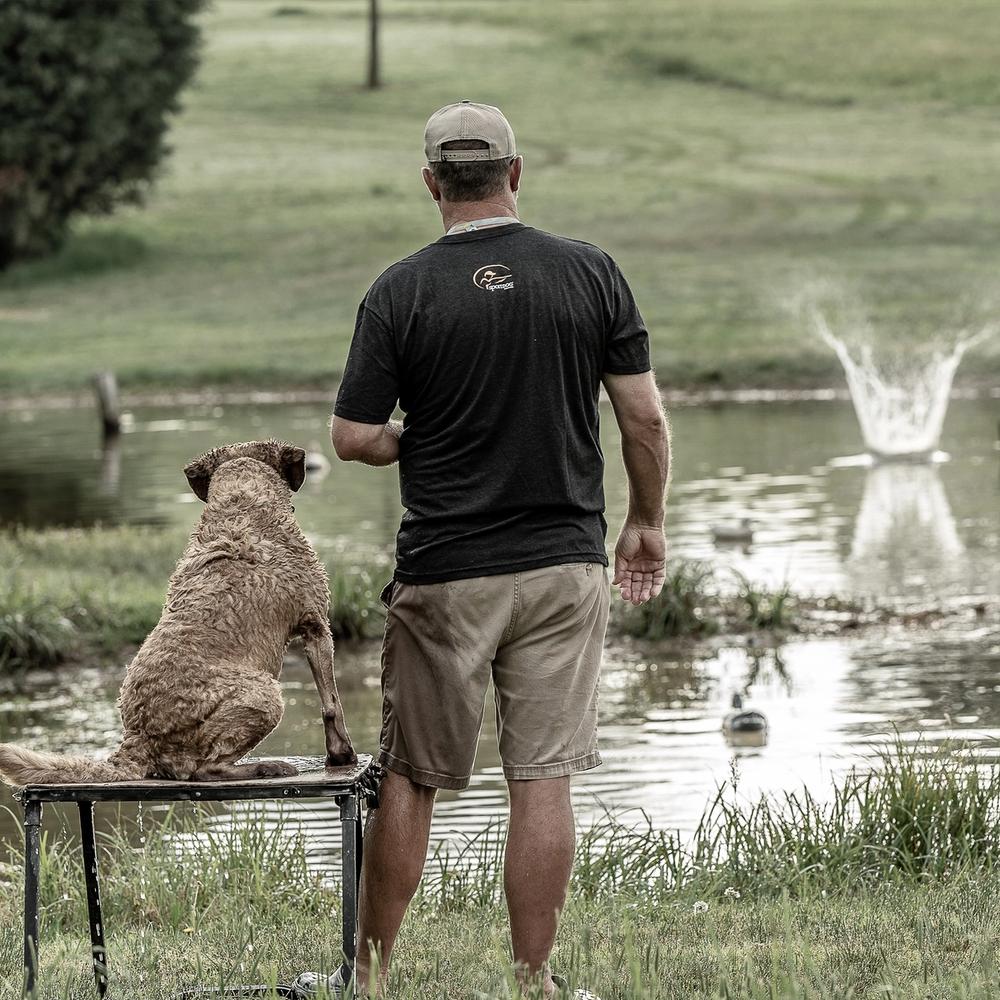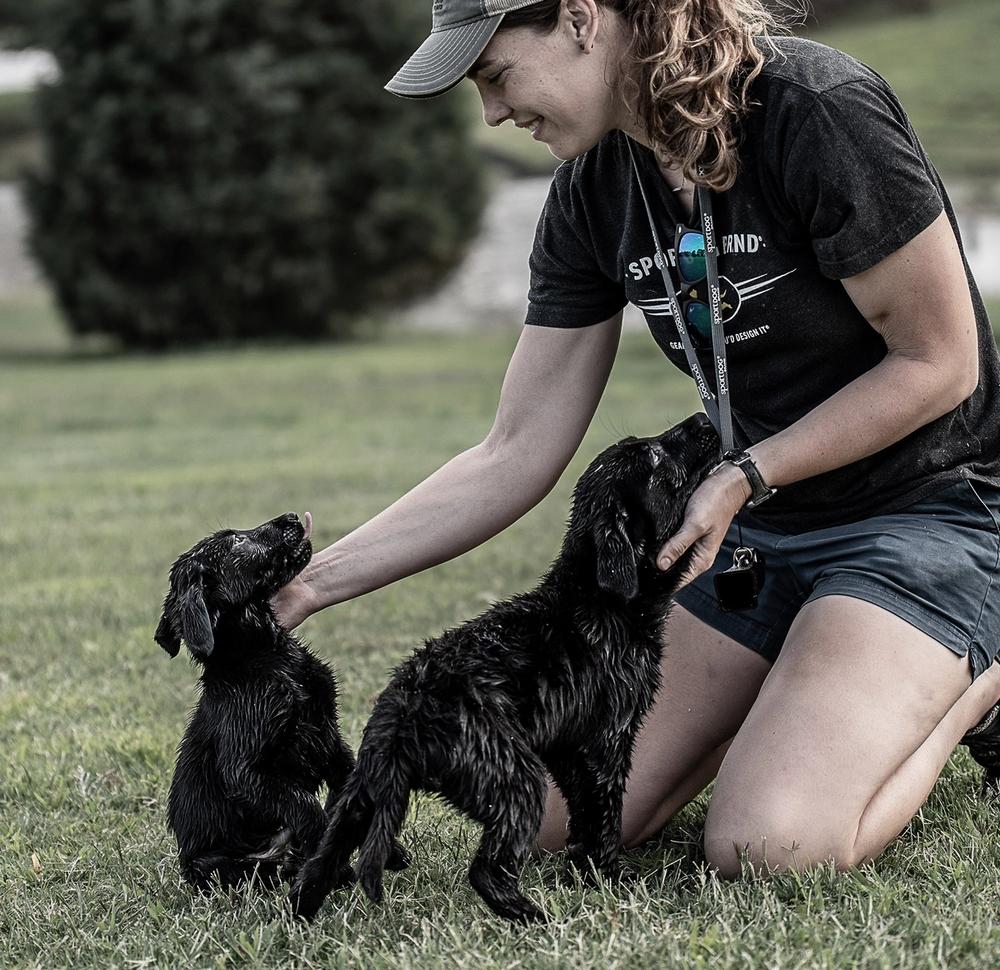
Keeping Steady at Retriever Trials
Posted by Billy MosleyIt's game day. So, now what?
It’s early on a Saturday morning; you pull into the test grounds excited to see how you and your retriever handle the judges set ups this weekend.
This is a common occurrence at hunt tests across the country; unfortunately another common occurrence is that the well-behaved and under-control retriever you train every day is not the dog that comes off the truck on the weekends. Instead, he is replaced by a wild-eyed, creeping machine that seems to lose his mind on the honor bucket.
The fact is hunt tests can bring out the worst in anyone’s dog: the excitement, sounds, smells and change in routine can play havoc with your dog’s mind. The handlers that figure out a way to minimize this are the handlers that typically come home with a dash full of ribbons.
There are a couple things you can do to try and help your dog keep his composure and keep you guys working as a team.
- Be sure your dog is accustomed to riding and sleeping in a crate or dog box, going from sleeping on the bed to sleeping in a dog box can be a big change and trigger for the dog that something different is going on.
- Find a way to train with a group on occasion. Training alone is a great way to teach and work on things, but exposing your dog to situations with a number of other dogs, handlers, etc. and having them on the truck listening to other dogs work is a great way to simulate the sounds and smells of tests.
- Don’t change your feeding schedule, even if it means stopping at a rest stop on the way to feed and air. You want to keep to you routine as closely as possible. Also, check out Senior ProStaffer Rhett Kermichle’s “Hunting Dogs Require Extra Care When Traveling” for more tips on keeping your dog comfortable and on schedule on the road.
- Arrive at the grounds early the morning of the test, make sure you air your dog well and give him a chance to burn some energy off.
- Get to your flight and WATCH THE TEST DOG. This allows you to see the test and formulate your plan as to how to attack the test. Having a plan and being confident in what you plan to do will keep you calm and in turn help keep your dog calm.
- Be sure your dog is comfortable waiting in holding blinds; spend time training a dog to sit calmly in a holding blind, so while waiting for your turn at the line your dog is not getting overly amped up in the holding blind.
- Have a routine going from the holding blind to the line; use the same cues/commands each and every time.
Keeping to a routine and being confident doesn’t ensure success on the weekends, but it will help you and your dog remain a little calmer which could be the difference is gaining that call back or getting that ribbon.
About Billy Mosley
Billy Mosley has been hunting since he was 5 years old and has continued his passion for the outdoors for the last 32 years. He started out training coon dogs and in the late 90's transitioned to duck dogs. Then in 2005 he opened his kennel as a spin off of being a waterfowl guide. Billy also competes in HRC hunt test and AKC hunt test. Billy has been a member of the SportDOG ProStaff team for the last five years and is a dedicated waterfowl hunter and trainer.

Billy Mosley
Shelby, NC
He decided to make the leap and make training retrievers a full time occupation. Billy has successfully trained and titled dogs in all levels of HRC hunt tests, as well as trained gun dogs and taught basic obedience for companion dogs. Billy has also competed in SRS events as well...
Related Articles

Building a Steady Retriever
by Tom Dokken
A retriever that remains calm in a duck blind and concentrates on watching birds fall is a joy to hunt with. In a perfect world, that’s how all retrievers would behave. While a steady retriever is something that most hunters want, the reality is that very few retrievers are truly...

Finding Your Perfect Retriever Puppy - Video
by The SportDOG Staff
In this SportDOG Training Tip (originally aired on Pheasants Forever TV) SportDOG Brand Senior Pro Staffer Chris Akin walks you through selecting a puppy. Akin discusses the pros and cons of owning, hunting and training females dogs versus males.
